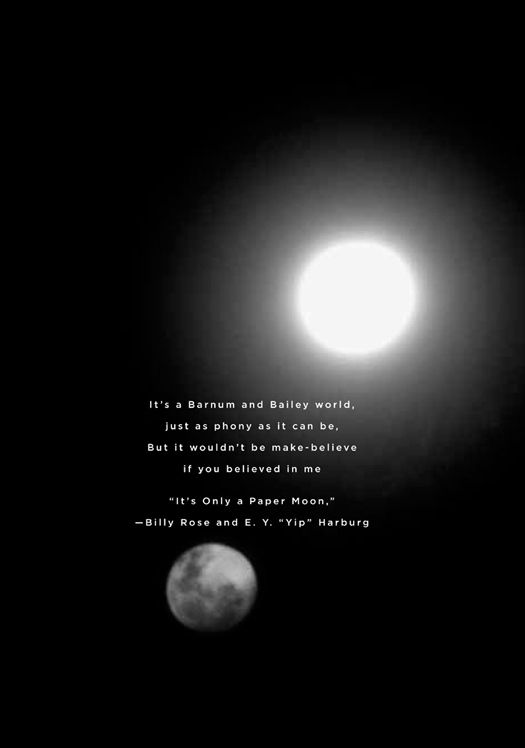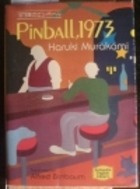Haruki Murakami - 1Q84
Here you can read online Haruki Murakami - 1Q84 full text of the book (entire story) in english for free. Download pdf and epub, get meaning, cover and reviews about this ebook. year: 2011, publisher: Knopf, genre: Art. Description of the work, (preface) as well as reviews are available. Best literature library LitArk.com created for fans of good reading and offers a wide selection of genres:
Romance novel
Science fiction
Adventure
Detective
Science
History
Home and family
Prose
Art
Politics
Computer
Non-fiction
Religion
Business
Children
Humor
Choose a favorite category and find really read worthwhile books. Enjoy immersion in the world of imagination, feel the emotions of the characters or learn something new for yourself, make an fascinating discovery.

- Book:1Q84
- Author:
- Publisher:Knopf
- Genre:
- Year:2011
- Rating:3 / 5
- Favourites:Add to favourites
- Your mark:
- 60
- 1
- 2
- 3
- 4
- 5
1Q84: summary, description and annotation
We offer to read an annotation, description, summary or preface (depends on what the author of the book "1Q84" wrote himself). If you haven't found the necessary information about the book — write in the comments, we will try to find it.
1Q84 — read online for free the complete book (whole text) full work
Below is the text of the book, divided by pages. System saving the place of the last page read, allows you to conveniently read the book "1Q84" online for free, without having to search again every time where you left off. Put a bookmark, and you can go to the page where you finished reading at any time.
Font size:
Interval:
Bookmark:

FICTION
AFTER DARK
AFTER THE QUAKE
BLIND WILLOW, SLEEPING WOMAN
DANCE DANCE DANCE
THE ELEPHANT VANISHES
HARD-BOILED WONDERLAND AND THE END OF THE WORLD
KAFKA ON THE SHORE
NORWEGIAN WOOD
SOUTH OF THE BORDER, WEST OF THE SUN
SPUTNIK SWEETHEART
A WILD SHEEP CHASE
THE WIND-UP BIRD CHRONICLE
NONFICTION
UNDERGROUND: THE TOKYO GAS ATTACK
AND THE JAPANESE PSYCHE
WHAT I TALK ABOUT WHEN I TALK ABOUT RUNNING:
A MEMOIR









Translation copyright 2011 by Haruki Murakami.
All rights reserved.
Published in the United States by Alfred A. Knopf, a division of Random House, Inc., New York.
www.aaknopf.com
Knopf, Borzoi Books, and the colophon are registered trademarks of Random House, Inc.
Originally published in Japan in three separate volumes as 1Q84 Books 1, 2, and 3 by Shinchosha Publishing Co Ltd, Tokyo, in 2009 and 2010. 1Q84 Books 1 and 2, copyright 2009 by Haruki Murakami. 1Q84 Book 3, copyright 2010 by Haruki Murakami. Adapted for this single volume with the participation of the author.
Library of Congress cataloging-in-publication data and permissions to reprint previously published material may be found at the back of the book.
This is a work of fiction. Names, characters, places, and incidents are either the product of the authors imagination or used fictitiously. Any resemblance to actual persons, living or dead, events, or locales is entirely coincidental.
Books 1 and 2 translated by Jay Rubin.
Book 3 translated by Philip Gabriel.
Jacket photograph: [apply pictures]/Alamy.
Jacket design by Chip Kidd.
Manufactured in the United States of America.
First United States Edition



The taxis radio was tuned to a classical FM broadcast. Janeks Sinfoniettaprobably not the ideal music to hear in a taxi caught in traffic. The middle-aged driver didnt seem to be listening very closely, either. With his mouth clamped shut, he stared straight ahead at the endless line of cars stretching out on the elevated expressway, like a veteran fisherman standing in the bow of his boat, reading the ominous confluence of two currents. Aomame settled into the broad back seat, closed her eyes, and listened to the music.
How many people could recognize Janeks Sinfonietta after hearing just the first few bars? Probably somewhere between very few and almost none. But for some reason, Aomame was one of the few who could.
Janek composed his little symphony in 1926. He originally wrote the opening as a fanfare for a gymnastics festival. Aomame imagined 1926 Czechoslovakia: The First World War had ended, and the country was freed from the long rule of the Hapsburg Dynasty. As they enjoyed the peaceful respite visiting central Europe, people drank Pilsner beer in cafs and manufactured handsome light machine guns. Two years earlier, in utter obscurity, Franz Kafka had left the world behind. Soon Hitler would come out of nowhere and gobble up this beautiful little country in the blink of an eye, but at the time no one knew what hardships lay in store for them. This may be the most important proposition revealed by history: At the time, no one knew what was coming. Listening to Janeks music, Aomame imagined the carefree winds sweeping across the plains of Bohemia and thought about the vicissitudes of history.
In 1926 Japans Taisho Emperor died, and the era name was changed to Showa. It was the beginning of a terrible, dark time in this country, too. The short interlude of modernism and democracy was ending, giving way to fascism.
Aomame loved history as much as she loved sports. She rarely read fiction, but history books could keep her occupied for hours. What she liked about history was the way all its facts were linked with particular dates and places. She did not find it especially difficult to remember historical dates. Even if she did not learn them by rote memorization, once she grasped the relationship of an event to its time and to the events preceding and following it, the date would come to her automatically. In both middle school and high school, she had always gotten the top grade on history exams. It puzzled her to hear someone say he had trouble learning dates. How could something so simple be a problem for anyone?
Aomame was her real name. Her grandfather on her fathers side came from some little mountain town or village in Fukushima Prefecture, where there were supposedly a number of people who bore the name, written with exactly the same characters as the word for green peas and pronounced with the same four syllables, Ah-oh-mah-meh. She had never been to the place, however. Her father had cut his ties with his family before her birth, just as her mother had done with her own family, so she had never met any of her grandparents. She didnt travel much, but on those rare occasions when she stayed in an unfamiliar city or town, she would always open the hotels phone book to see if there were any Aomames in the area. She had never found a single one, and whenever she tried and failed, she felt like a lonely castaway on the open sea.
Telling people her name was always a bother. As soon as the name left her lips, the other person looked puzzled or confused.
Miss Aomame?
Yes. Just like green peas.
Employers required her to have business cards printed, which only made things worse. People would stare at the card as if she had thrust a letter at them bearing bad news. When she announced her name on the telephone, she would often hear suppressed laughter. In waiting rooms at the doctors or at public offices, people would look up at the sound of her name, curious to see what someone called Green Peas could look like.
Font size:
Interval:
Bookmark:
Similar books «1Q84»
Look at similar books to 1Q84. We have selected literature similar in name and meaning in the hope of providing readers with more options to find new, interesting, not yet read works.
Discussion, reviews of the book 1Q84 and just readers' own opinions. Leave your comments, write what you think about the work, its meaning or the main characters. Specify what exactly you liked and what you didn't like, and why you think so.













